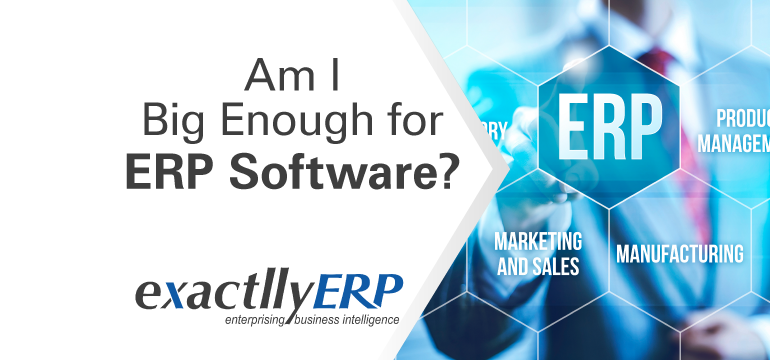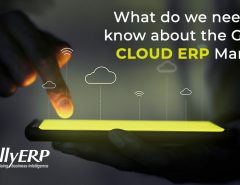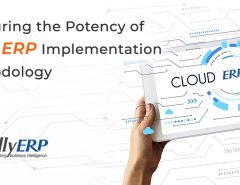ERP Software:
You may still be using QuickBooks or one of the other accounting software programs, meant for small businesses. It may even be working just fine for you and your businesses. It is tempting to assume that a company in such a situation does not require an ERP because it is not large enough. Any company that hopes to grow bigger will need an ERP, even if it is not very big at the moment. In this article, let us take a look at how this is so and why.
Who needs ERP Software?
A number of companies conduct detailed transactions even if they are small company. This may include revenue, expenses, shipping, and other such variables. Moreover, many small companies also fall under certain government regulations and corporate quality controls. Companies such as these will need ERP, even if they are small in size.
Moreover, if the company requires audit controls and accountability, an ERP makes it easier to keep all the numbers in sight. ERP systems help companies to gain access to expert analytics and board-quality reports. An ERP helps small businesses to understand their state of finances and business in real-time, while also helping them to coordinate a number of business processes within an organization.
Very Small Companies may not Need a Full Suite ERP:
Some smaller companies however may not need an ERP. These are those companies that do not foresee any growth within the next five years. Such companies may also not have many files, customers, and clients to deal with. Moreover, if a company does not have a regulatory body to which it needs to be accountable, ERP may not be necessary at that particular moment. However, even these smaller companies that seemingly do not require ERP may benefit from a stripped-down version of an ERP suite in order to help bring order within the organization.
Before deciding for or against an ERP system, ask yourself these questions:
- Will you grow as a company in the next five years?
- Are your clients and customers growing in size?
- Do you find it difficult to manage your products and services?
- Are there policies and regulations that you need to stay updated with?
- Are your existing business productivity tools falling short of keeping you efficient?
If you answered “yes” to any of the questions above, it is probably time you started thinking about an ERP system or at least a stripped-down version of it. On the other hand, if you answered “no” to all these questions above, you may not need an ERP at this moment but you may benefit from consulting with an ERP professional who may be able to guide you when you will gain from using an ERP or similar software program.
Consult with an ERP Specialist:
ERP helps companies to automate several business processes and thus enhance productivity and efficiency. In the long term, it also reduces costs and boosts revenues. It may seem expensive to invest in an ERP in the beginning if you are a small company. However, an ERP need not be expensive and it also doesn’t have to be a full-suite program.
You could consult with ERP professionals and discuss how a certain module of an ERP or a stripped-down and basic version of an ERP could help your company. As they say, there is never a wrong time to adopt futuristic technology and remain ahead of one’s competitors.
Feel free to Connect With Us and get a Free Demo.





Leave a Reply